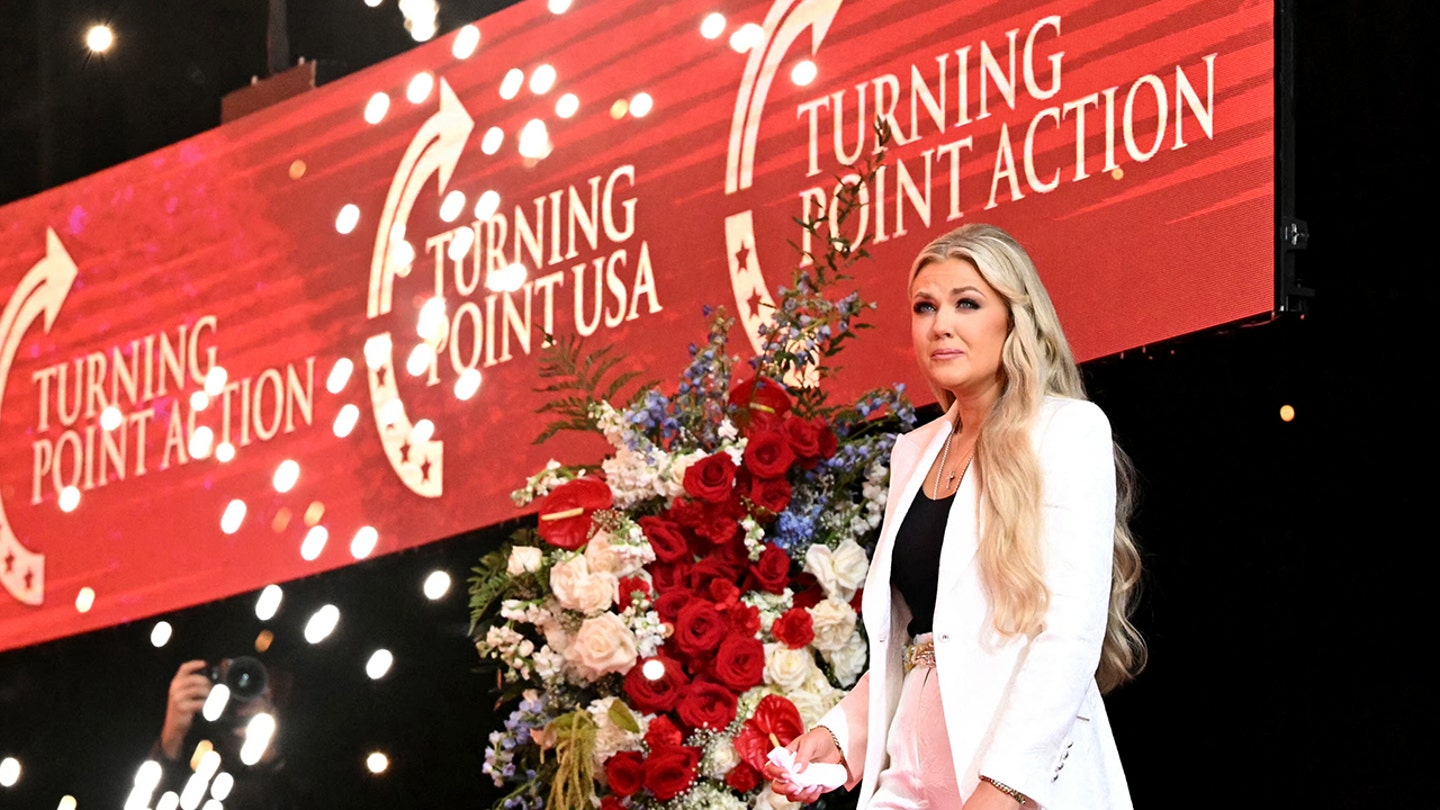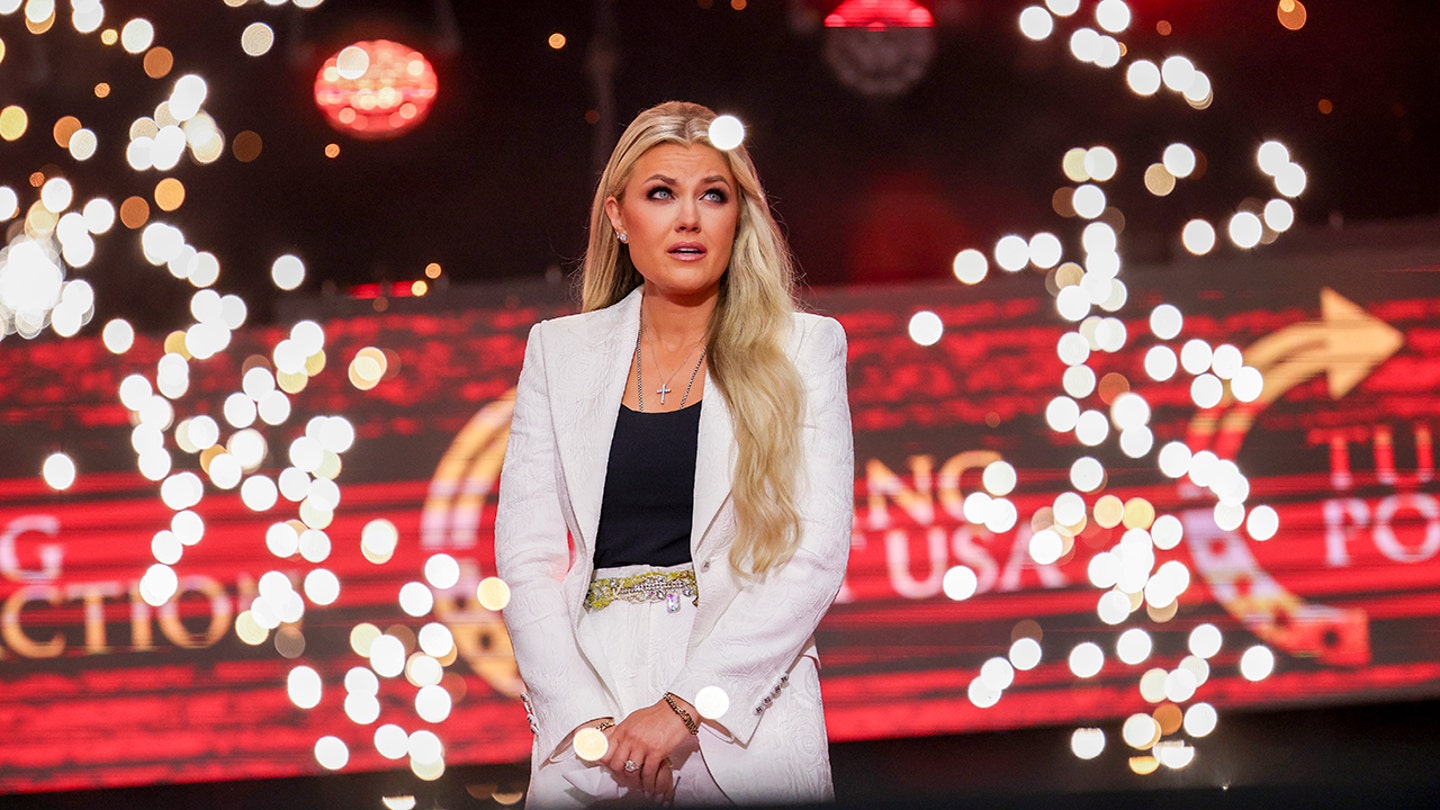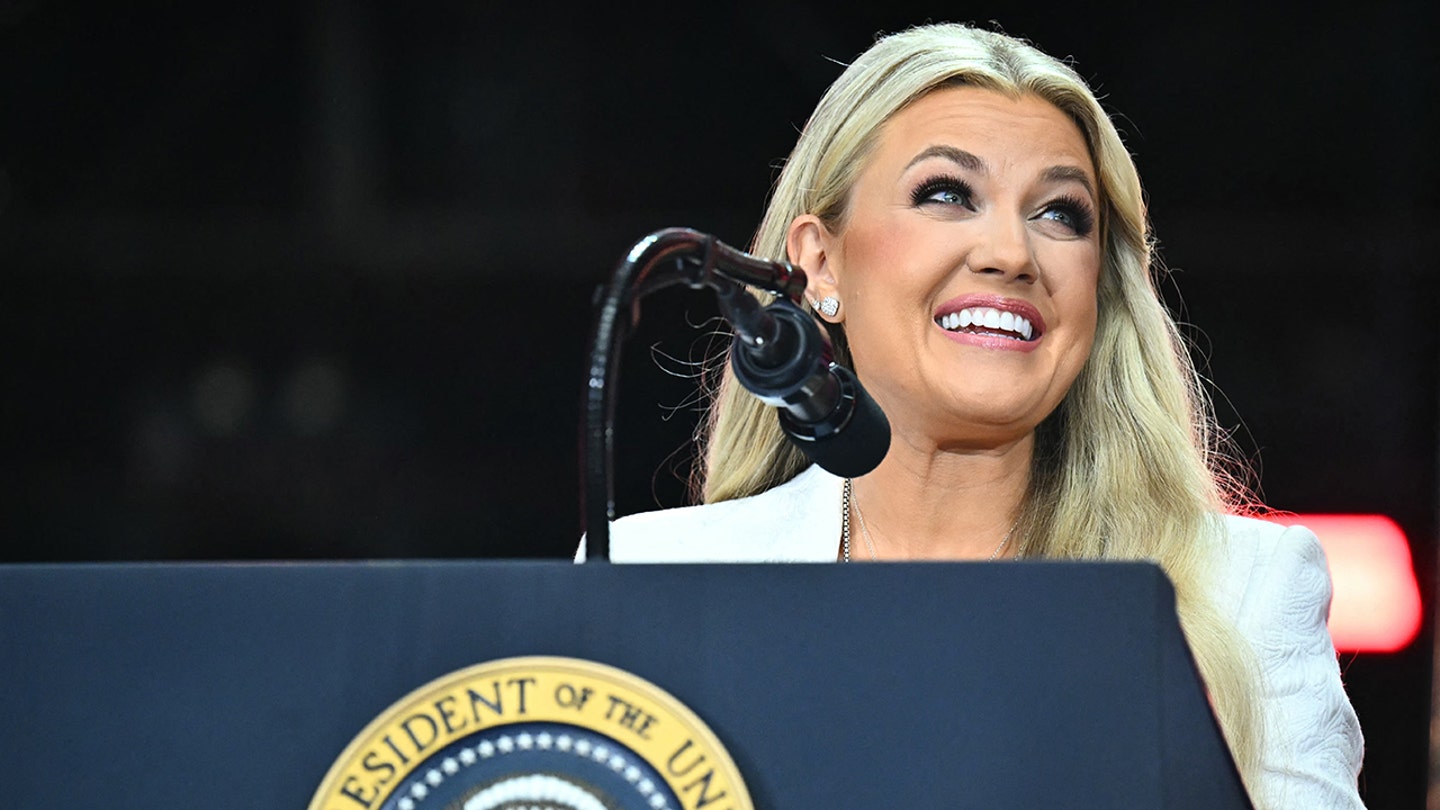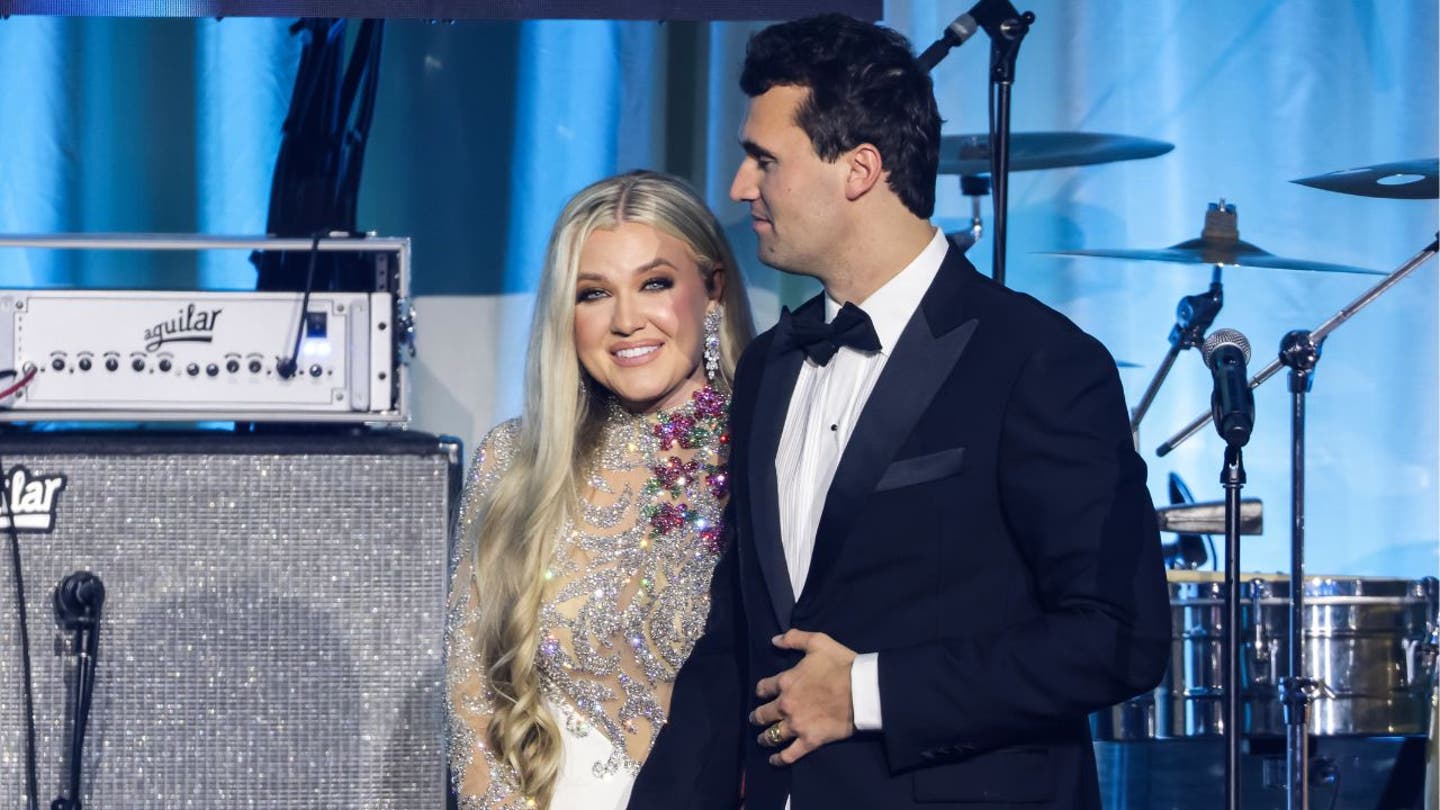Heartbreaking Grace: Widow Forgives Husband’s Killer at Memorial - ‘Charlie Would Want This’
Erika Kirk publicly forgives her husband’s alleged killer at a Glendale, Arizona memorial

In a moment that left many in attendance both stunned and moved, Erika Kirk, widow of conservative activist Charlie Kirk, publicly forgave the man accused of taking her husband’s life during a memorial service held in Glendale, Arizona. Speaking before a crowd of thousands, Erika’s words highlighted her unwavering commitment to faith, compassion, and the principles her late husband cherished.
Charlie Kirk, the founder of Turning Point USA, was tragically shot and killed in September 2025 while delivering remarks at Utah Valley University. The alleged shooter, 22-year-old Tyler Robinson, was quickly apprehended and charged with murder. The shocking news reverberated across the nation, leaving friends, supporters, and political figures grappling with grief and disbelief.
At the State Farm Stadium, Erika Kirk stood before a solemn audience, her composure unbroken despite the unimaginable loss she had endured. With measured calm, she addressed the crowd, saying, “I forgive him because it is what Christ would do, and it is what Charlie would do.” Her declaration drew audible gasps from some attendees, while others responded with tears and applause. Erika cited the words of Jesus Christ, quoting, “Father, forgive them, for they know not what they do,” emphasizing that her forgiveness stemmed from deep personal faith and the values she shared with her late husband.
Throughout her speech, Erika highlighted the humanitarian work and compassionate ethos that had defined Charlie Kirk’s life. She reminded the audience that her husband had always believed in giving people, even those who had wronged him, an opportunity for redemption. By extending forgiveness to the man accused of murdering him, Erika sought to honor Charlie’s legacy and to demonstrate that love and understanding can prevail even in the face of tragedy.
Erika’s stance went beyond personal sentiment. She explicitly stated that she would not seek vengeance, leaving the judicial consequences to the authorities. “I do not want the blood of this young man on my hands,” she said, emphasizing that while justice must take its course, her path would be one of mercy. In doing so, she framed her response within a moral and spiritual context, offering a rare glimpse into the profound personal resolve required to forgive in circumstances that most would find unimaginable.

The memorial service drew a wide range of attendees, including prominent political figures. Among them was former President Donald Trump, who delivered remarks that contrasted sharply with Erika’s message of forgiveness. Trump spoke about political opposition and personal enmity, underscoring a philosophy at odds with the Kirk family’s ethos of compassion and reconciliation. This juxtaposition highlighted not only Erika’s remarkable personal courage but also the broader cultural and political divides that such high-profile tragedies often illuminate.

Public reaction to Erika Kirk’s words has been widespread and varied. On social media, many lauded her strength and moral clarity, describing her as an embodiment of resilience and faith. Others expressed disbelief, finding it difficult to comprehend the notion of forgiving someone accused of committing such a heinous act. Commentators across media platforms have debated the implications of her forgiveness, with some noting that it serves as a poignant reminder of the human capacity for grace and moral courage.
Analysts have suggested that Erika’s approach may influence public discourse surrounding forgiveness, justice, and the role of faith in healing. In a society often divided by anger and retribution, her message of empathy resonates as a counter-narrative to the prevalent emphasis on punishment and revenge. By publicly forgiving her husband’s alleged killer, Erika Kirk has created a moment of reflection, prompting discussions on the intersection of personal morality, religious conviction, and civic responsibility.
Throughout the service, attendees could sense the weight of Erika’s decision. Friends and supporters recalled Charlie Kirk’s dedication to mentoring young people and fostering civic engagement, traits that Erika invoked as she framed her forgiveness within the context of continuing his mission. Her speech not only honored her husband’s life but also reaffirmed the values he championed, providing a guiding example of ethical leadership and emotional resilience.

In the days following the memorial, news outlets have revisited Erika’s remarks, underscoring the rarity of such public forgiveness in cases involving violent crime. Legal experts have noted that while her forgiveness does not impact the judicial process, it may influence public perception and the broader narrative surrounding the case. Meanwhile, advocacy groups and religious organizations have cited Erika’s actions as a compelling example of applying faith principles in real-world, high-stakes situations.
Erika Kirk’s message also serves as a powerful reminder of the human dimension behind headlines of violence and tragedy. While news coverage often focuses on the perpetrator and the legal proceedings, her words draw attention to the enduring human capacity for empathy, even when confronted with loss and suffering. By choosing forgiveness over anger, she not only honors her husband’s legacy but also models a pathway toward reconciliation and emotional healing for others facing similar personal tragedies.
The memorial service concluded with a moment of silence, as attendees reflected on Erika’s profound message. Her decision to forgive stands as a testament to the enduring power of love, faith, and moral courage, providing a lens through which society can consider the possibilities of compassion in the aftermath of senseless violence. Erika Kirk’s actions challenge prevailing notions of justice and vengeance, encouraging a deeper understanding of the human spirit and its capacity for grace under extraordinary circumstances.

As the nation continues to process the ramifications of Charlie Kirk’s death, Erika’s words echo as a call for reflection, empathy, and moral integrity. They remind us that even in the face of profound loss, the choice to forgive remains a transformative and courageous act, one that transcends politics, ideology, and personal pain. By choosing this path, Erika Kirk has not only honored her husband’s memory but also offered the world a profound example of human resilience and the enduring power of compassion.
In the coming weeks and months, it is likely that Erika Kirk’s message will continue to resonate across communities, inspiring dialogues about forgiveness, justice, and the moral responsibilities of individuals and society alike. Her public act of mercy is more than a personal decision; it is a narrative moment that invites reflection on how humanity can confront hatred, grief, and violence with understanding, empathy, and, ultimately, love.
Through her courage and conviction, Erika Kirk has demonstrated that even amid unspeakable tragedy, the human spirit can rise above vengeance to embrace grace, leaving an indelible mark on all who bear witness to her extraordinary act of forgiveness.

